Vielo V+1 Strato x CHPT3 first ride review
We put David Millar's dream build through its paces
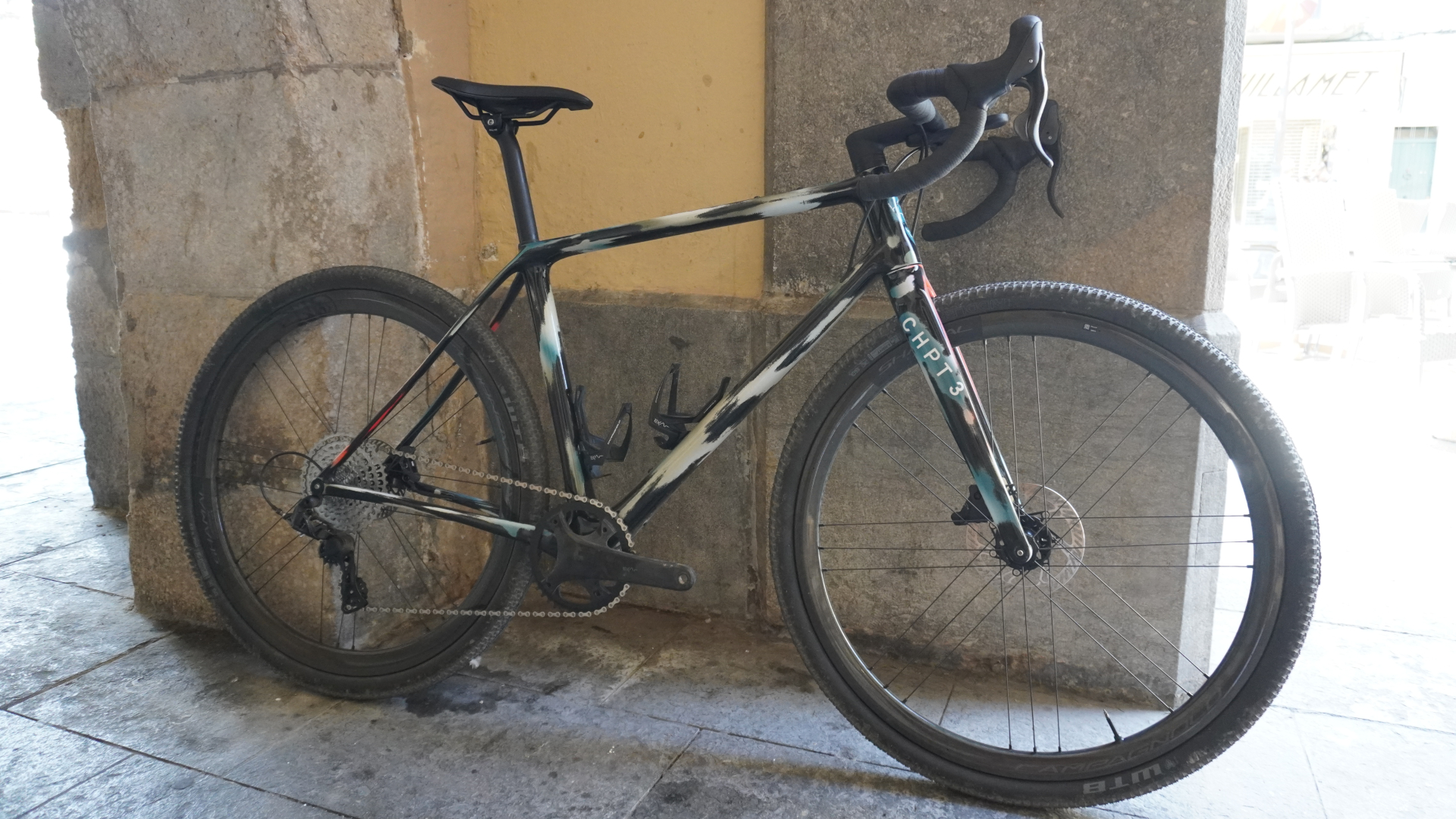
The V+1 Strato from Vielo’s collaboration with CHPT3 has had David Millar’s influence stamped all over it, from the innovative paintjob to the heavy inclusion of Campagnolo components. These felt a good match for the bike’s racing aspirations, and it still felt rapid even with chunky 45mm tyres.
-
+
Striking paintjob
-
+
1x optimised and specific
-
+
Sprightly feel
-
-
Expensive (likewise the lower spec builds)
-
-
Ekar groupset sensitive to setup
You can trust Cycling Weekly.

For this collaboration, Vielo supplied its recently released V+1 Strato frame (now in its second generation) while CHPT3's founder, ex-pro David Millar was in charge of the spec and the paintjob.
The V+1 is designed to be a race-oriented gravel bike – as opposed to being a modern version of a long-distance tourer or as essentially a mountain bike with drop bars.
Although only 50 bikes will be produced to this particular spec, the V+1 will continue to be sold with Campagnolo's Ekar groupset, as well as in SRAM and Shimano builds too.
As part of CHPT3's launch of its new DIRT clothing range, I rode one of these bikes with David Millar on his local trails. Although this is only a first ride review, the route did feature a pretty broad spectrum of gravel, from wide-open double track to loose rocky descents.
Frame
What sets Vielo apart from the crowd is the focus on specificity, producing bikes which are optimised for the spec they're carrying.
Of course, there is always going to be a place for highly versatile bikes which can be built in as many different ways as you could possible imagine.
The latest race content, interviews, features, reviews and expert buying guides, direct to your inbox!
But at the same time, if you're set on a 1x build, what's the point in having the driveside chainstay performing acrobatics to avoid an inner ring you're never going to mount? It makes sense for a brand wanting the maximum number of different builds from the same frame, but not really for someone wanting one specific build.
As an aside, in Vielo’s road bikes, there are frames which don’t even have cable ports for the rear mech – for those running SRAM AXS, there's just no need. But this isn't something Vielo has done yet for gravel. Yet.
Back to the 1x specific frame of the V+1: the down tube is not only super wide, but it's also completely symmetrical as it flows into the chainstays, providing the dual benefits of a stiffer pedalling platform while also reducing the amount of material required. The Strato frame of the CHPT3 build has a claimed weight of 1,100g, while the superlative Alto is claimed to be just 880g.
In terms of the tyre clearances, you can go up to 50mm in 650b or 45mm in 700c.
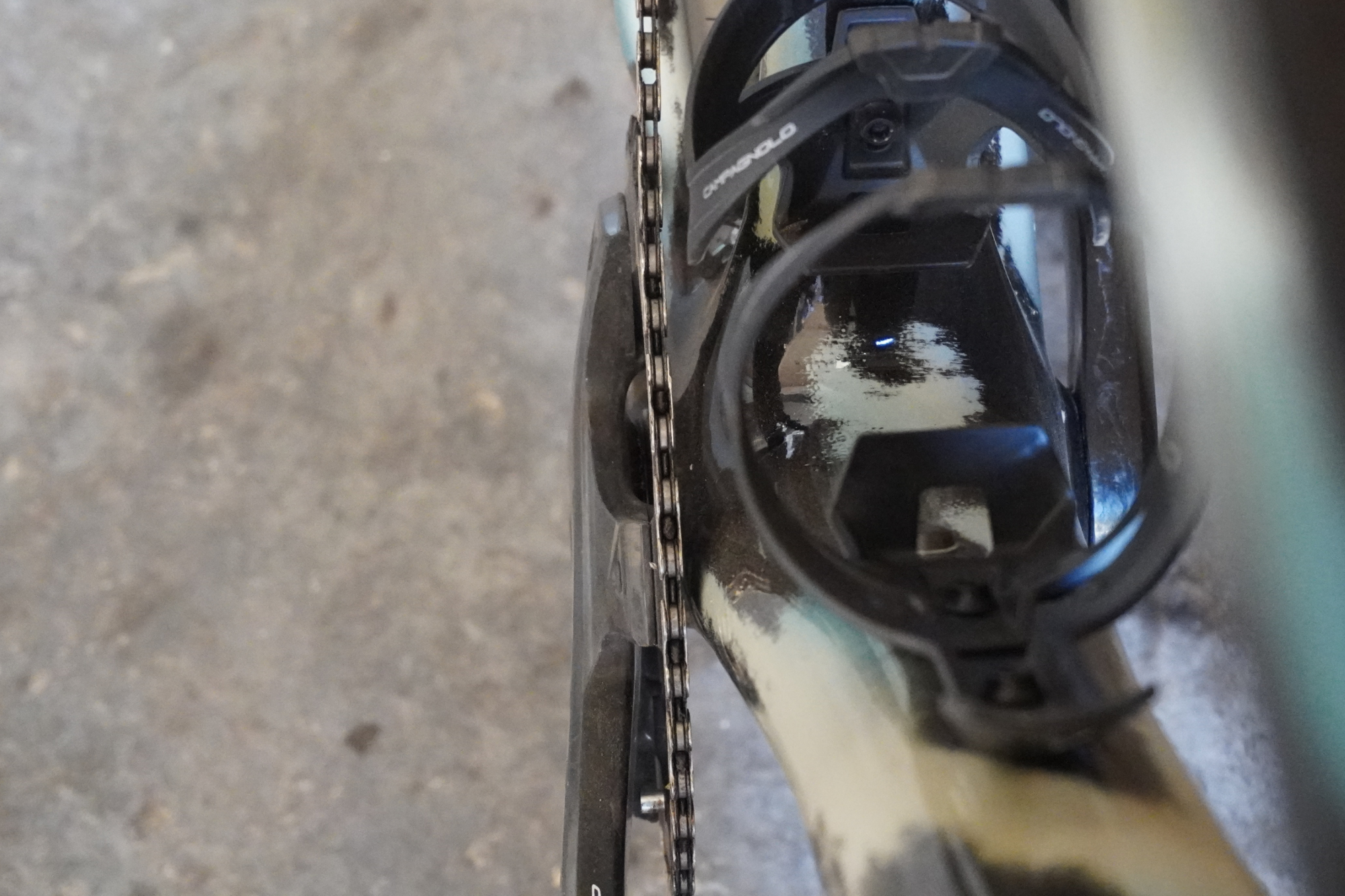
Designed as the bike is for faster riding, the front end is a little lower and longer than you typically see on a gravel bike, with stack coming in at 572mm and the reach at 393mm in a size medium.
Also, although there are mounts on the top tube and underside of the down tube, there aren’t triple fork mounts and there isn't a build with front suspension – the reasoning being if you need either of those, then you're probably better suited by a different bike.
That said. there is nothing stopping you swapping in a fork of your choosing with either of those capabilities – the head tube can handle it.
The thru-axles are also quite special: the pitch of the tread is much larger so it only takes a couple of turns to get the axle out. There’s also a QR type handle, so you don’t need to fish around the Allen keys. The rear dropout is replaceable with a more standard pitch, in case your turbo requires that.
Vielo is usually known for its smart, pastel paintwork, but the CHPT3 collaboration marks quite a departure from that.
Eduard, a Catalan painter who's painted many of David Millar's shoes and bikes in the past, covers each of the bikes in an array of colours, before painting over it all with a layer of black paint. Then, he carefully sands down the black layer in places to reveal the colours underneath.
The idea was to make a bike which looks dirty when it's clean and clean when it's dirty, with patterns on each frames being completely unique.
Spec
Starting with the finishing kit, as this is all Vielo's own. The handlebar is a one-piece unit, but stem length and bar width are customisable between 80 to 110mm and 38 to 44cm, respectively. A neat feature is that the clamp to the steerer tube is made of aluminium for greater strength, and then wrapped in carbon to create a seamless transition to the stem and rest of the bar.
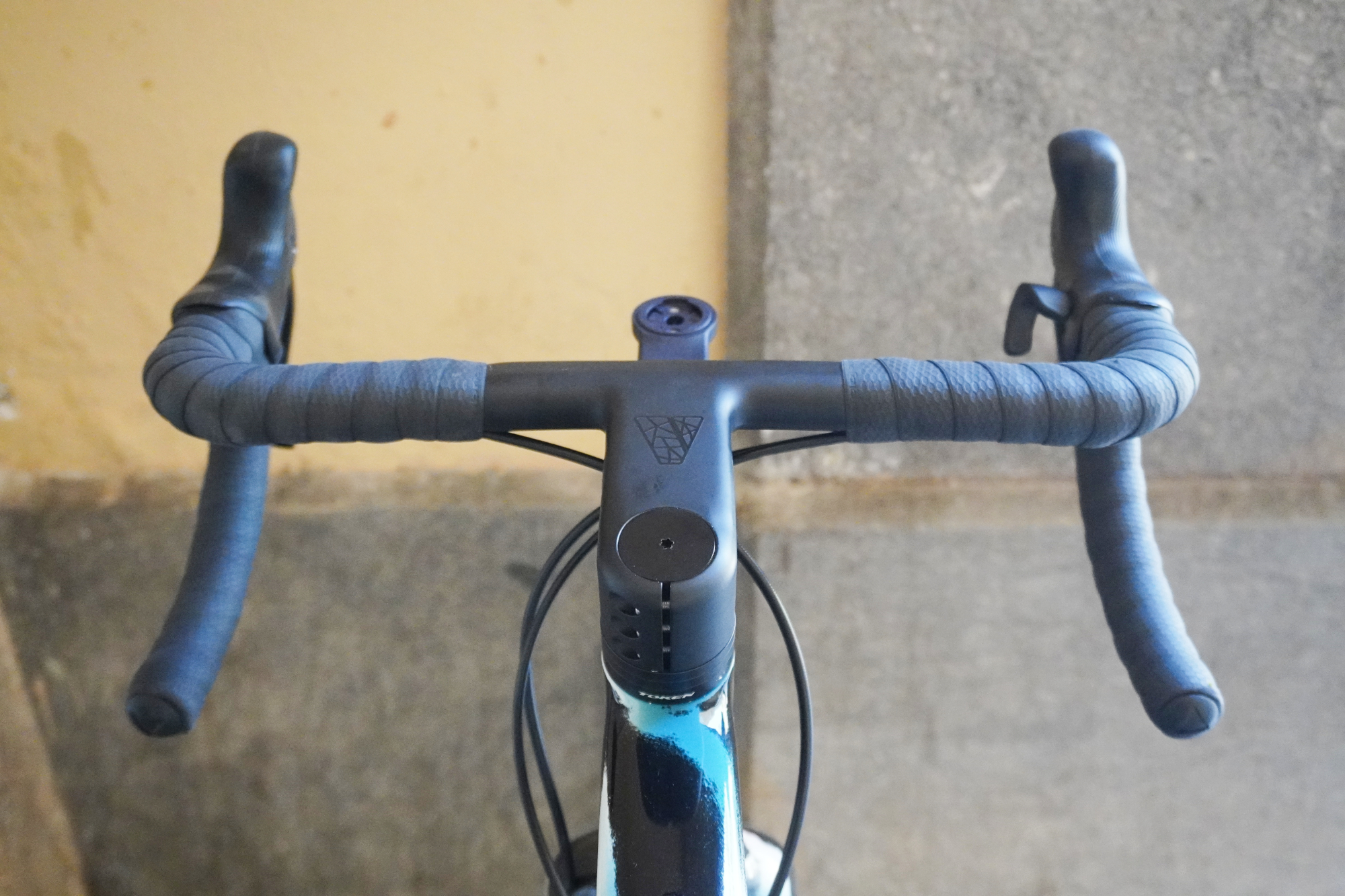
The seatpost is also Vielo's own, with an update clamp to make saddle swaps and adjustment a little easier. Finally, Vielo also produces its own cranks for complete control over the chainline, claiming it can back pedal in the largest sprocket of a SRAM Eagle cassette and not drop down any gears.
The stance width of the Vielo cranks is also kept narrower than Shimano and SRAM's gravel offerings, which are a little wider to open up compatibility with a greater range of frame designs. But again, coming back to that specificity, as the rear end can fit road-width crank arms, why go any wider?
Serendipitously, Campagnolo's Ekar cranks are actually spot on in terms of chainline and have essentially the same stance width as Vielo's own and so are used in the builds with that groupset.

With 13 speeds and five single-tooth jumps, the 9-42t cassette provides a pretty convincing answer to concerns about large jumps with 1x set ups. Paired to a 42t chainring, the gearing is very much on the meaty side, with a top gear slightly larger than a 50x11 combination. But given the unabashed race focus, that is fair enough.
The bike rolls on Campagnolo's Shamal Gravel Carbon wheels with their distinctive lacing pattern. Lightweight at a claimed 1,585g and fairly deep with a 35/40mm front and rear profile, they are a little on the narrow side for modern gravel tyres, with an internal width of 21mm.
The tyres were WTB Riddlers in 700x45c with their file centre tread and more aggressive knobs on the side.
The ride
On the flat and smooth, although the tyres were quite wide at 45mm, I was still able to motor along at a good pace with minimal effort. Likely the front end also played a role, being a little lower than that of a typical gravel bike,
The reach was atypically long in the bars, but with a shorter stem my hands felt in about the right spatial position. I gave it a go sinking into the aero hoods position and it felt quite comfy. If you’ve got a bit of a road slog out to the trails (which it turns out there isn’t from Girona) then that extra efficiency could be quite useful.
On short, spiky climbs it felt pleasingly responsive, coping well with hard accelerations from a near standstill, after an impromptu change of line – the trail always looks smoother on the other side. But whether was down mostly to a low weight or highly stiff frame, I couldn’t really determine.
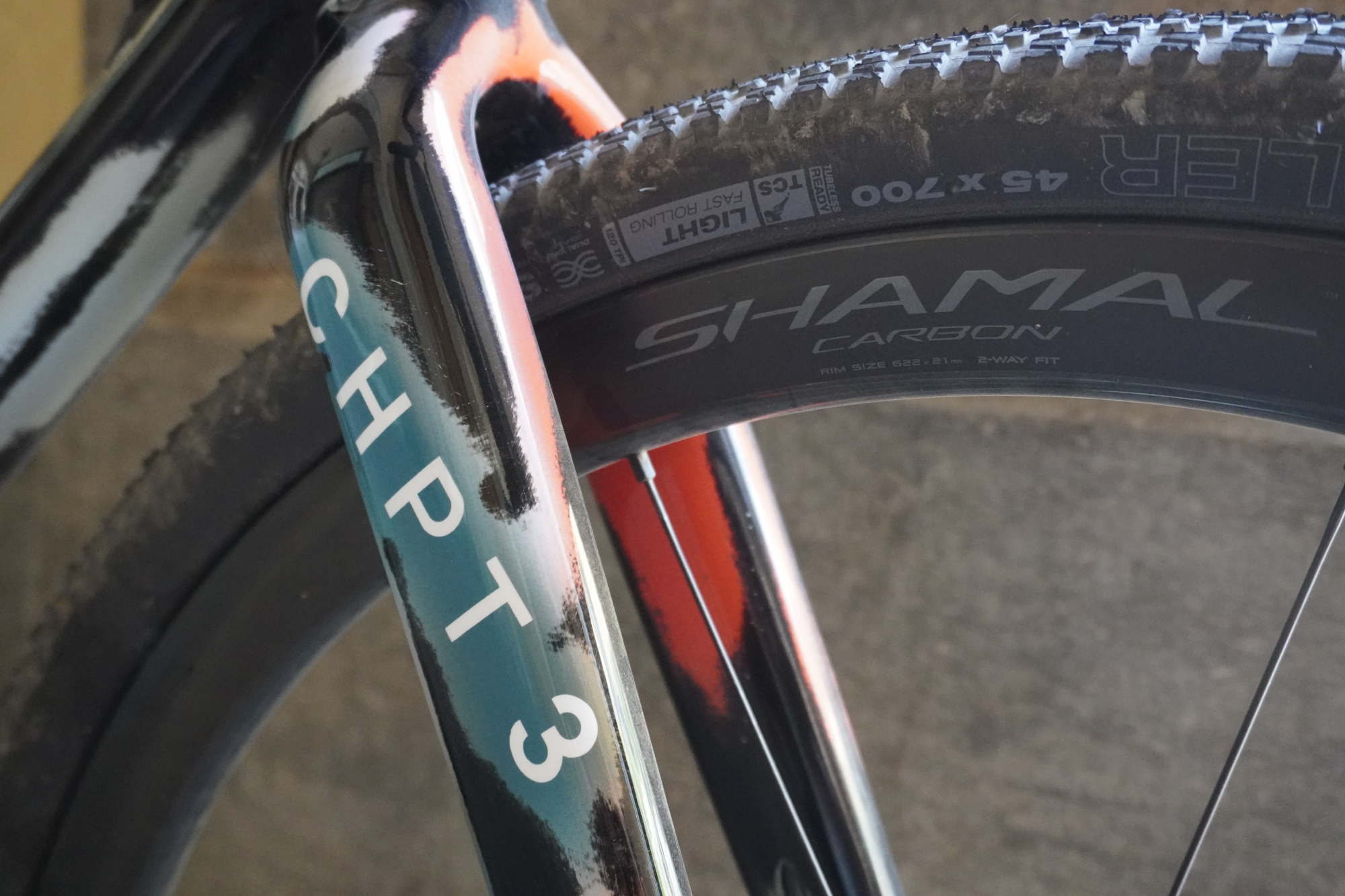
Compared to other racy gravel bikes like the Cervélo Áspero, the back end is relatively long at 435mm – more similar to a typical 'endurance' gravel bike's in that respect. Combined with a slack 70.5-degree head angle, it felt really quite stable on steep descents with loose rocks shifting and scattering under the tyres.
I’d imagine that the V+1 would struggle a bit more on tighter and twisty trails with that long rear end, but although the riding was quite technical in the steepness and terrain, there weren’t really any sharp corners, so I didn’t get a feel for that aspect.
Campagnolo Ekar is a really nice groupset. The jumps between the gears were seamless and, for this ride, I had all the range I needed. With that said, in squeezing quite so many sprockets onto the freehub body, the system is quite sensitive to set up and I did need to give the barrel adjuster a little tweak to get it running smoothly again.
The braking performance was great, I think the best out there. It’s just so easy to control the power, which allows you to break later and harder because there’s less of a worry about going so close to the limit of the tyre’s grip.
The same weekend I was riding the new Dura-Ace and the difference in feel was quite significant. Shimano's update has made the braking really progressive – at the start of the travel you can really feather the brakes so delicately, but once you get to a certain point in the travel, the power really ramps up, allowing you to really scrub the speed off.
But there isn't so much of a middle ground between those two extremes; the ramp is really quite fast. Campagnolo, on the other hand, feels a bit more linear and I found this suited my riding a little more – but that's going to come down to personal preference.
Value
At £7,000, the Vielo V+1 x CHPT3 is unquestionably expensive. But then again, as a special edition item of a limited batch of 50, it isn't really intended to be bought for because its's a bargain.
More generally, the V+1 Strato with Shimano GRX800 comes in at £4,799. For comparison, the Canyon Grizl with a pretty much identical spec edges in at just under £3,000, so significantly cheaper.
Interestingly, the Shimano GRX Di2 build on the lighter V+1 Alto frame costs £5,999, which isn’t far off Specialized's Diverge Expert Carbon which costs £5,250 with essentially the same build. Factor in the fact that Vielo lets you choose the stem length, bar width, crank length and chainring size and the gap closes a little more.
So that’s essentially what it is. Economies of scale mean that the cheaper builds from larger brands are much cheaper than the comparable ones from Vielo. But at the other end, bike brands seem to be pricing their top end options in relation to what people are prepared to spend. rather than as a reflection of the price. Meaning that the prices from smaller brands end up becoming rather closer.
Conclusion
In all, I found the Vielo x CHPT3 V+1 bike to be pleasingly fast, able to motor along at pace and quickly respond to sudden accelerations. The long wheelbase meant that steep and rocky trails were dispatched with aplomb too.
However, I didn’t get a chance to test it on twisty trails, so can’t comment on that aspect of the handling. Also I didn’t put in any all-out efforts on the bike, so don't have a full feel for the levels of stiffness.
It’s quite nice that the brand is producing bikes without compromise for how they are actually going to be used, with the 1x specific design and optimised cranks. The tweaks aren't quite like night and day, for an analogy, it's more like the difference between Dura-Ace and Ultegra than between a box and deep section wheel.
But there's a lot to be said for the satisfaction of having exactly the right tool for the job.
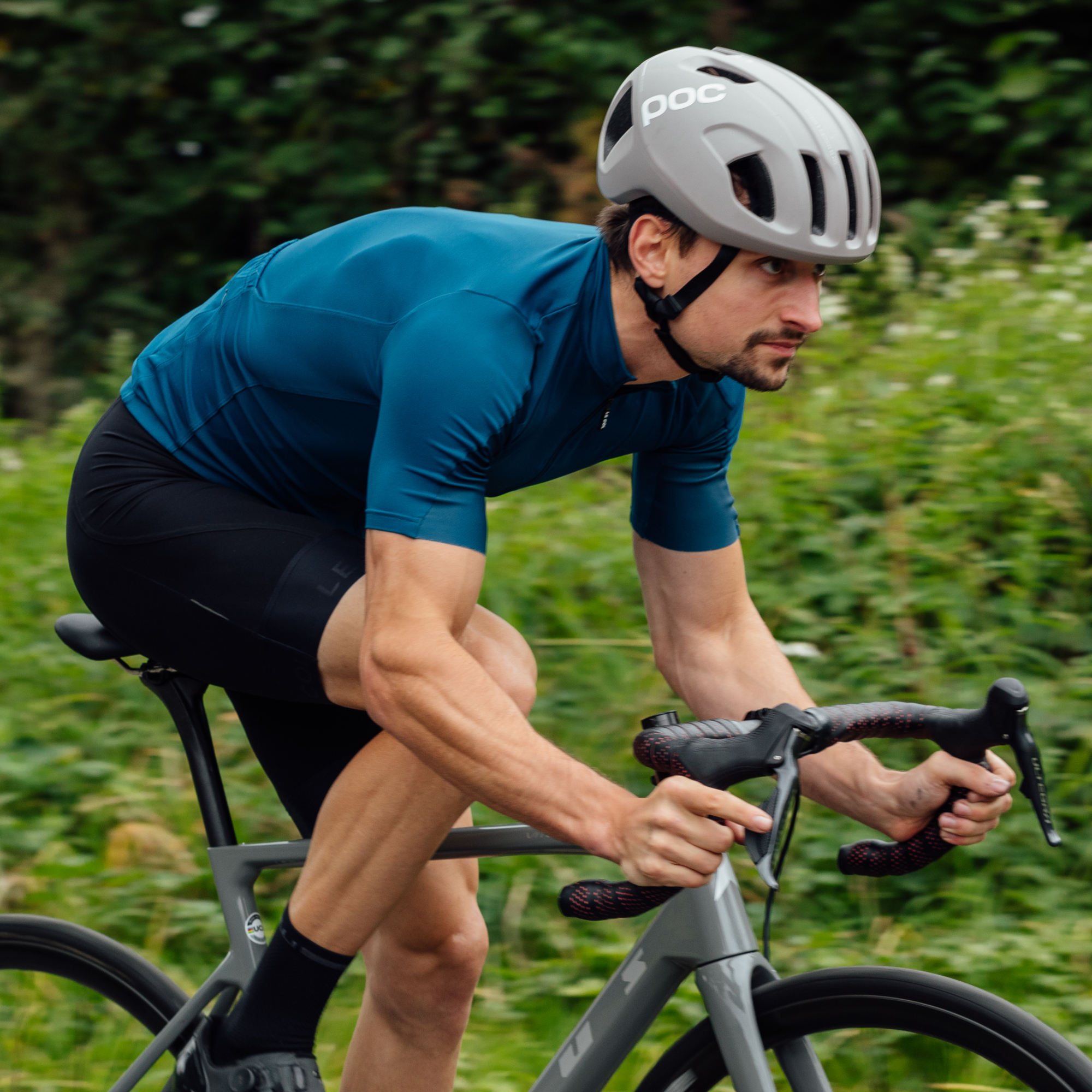
After winning the 2019 National Single-Speed Cross-Country Mountain Biking Championships and claiming the plushie unicorn (true story), Stefan swapped the flat-bars for drop-bars and has never looked back.
Since then, he’s earnt his 2ⁿᵈ cat racing licence in his first season racing as a third, completed the South Downs Double in under 20 hours and Everested in under 12.
But his favourite rides are multiday bikepacking trips, with all the huge amount of cycling tech and long days spent exploring new roads and trails - as well as histories and cultures. Most recently, he’s spent two weeks riding from Budapest into the mountains of Slovakia.
Height: 177cm
Weight: 67–69kg